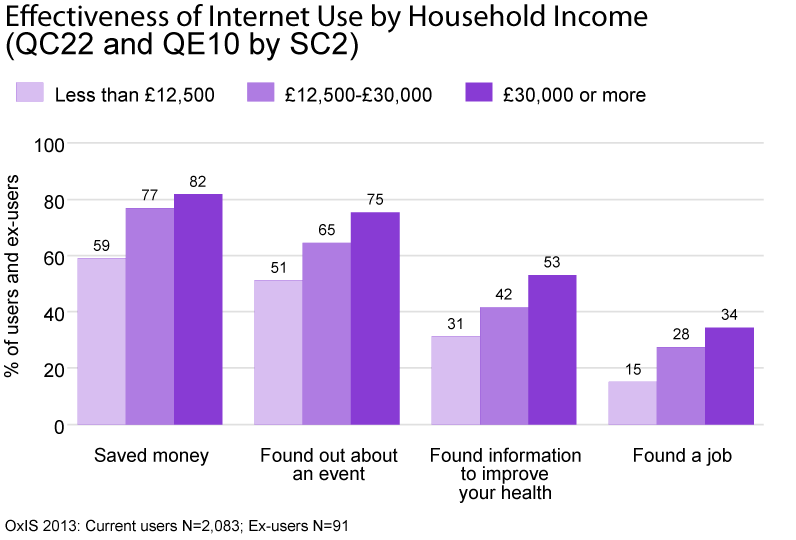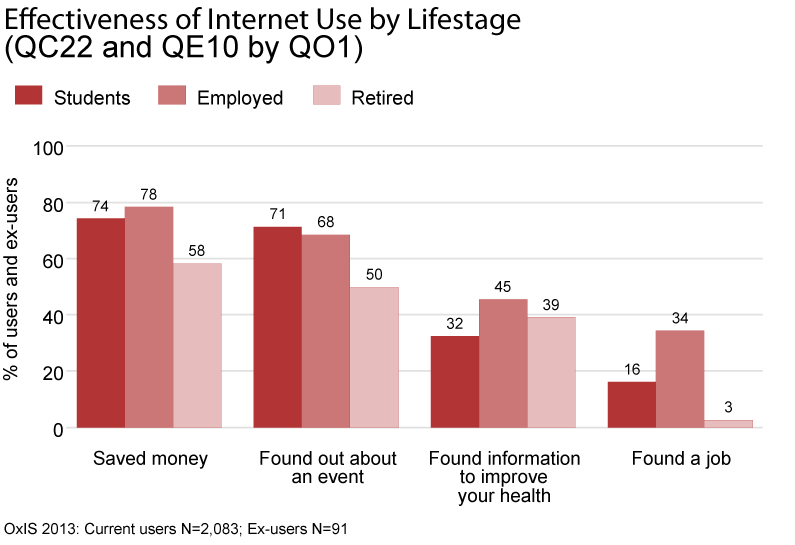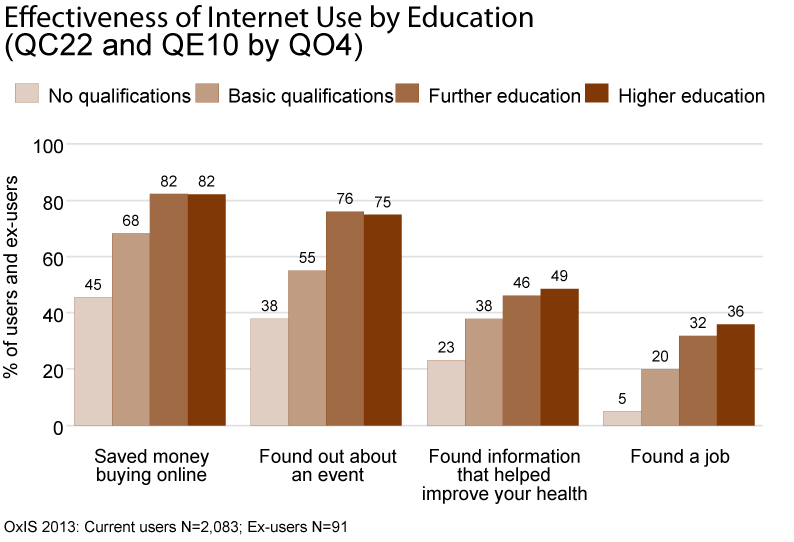Benefits from use of the Internet appear more likely to accrue to people with higher household incomes. That pattern exists across all four benefits measured here: saving money, finding out about an event, finding health information, and finding a job. This raises the interesting question, why are lower income people less likely to realise benefits from Internet access? Do they have fewer opportunities presented to them? Are they using the Internet less effectively?
In terms of lifestage, over 50% of all three lifestage groups (ie students, employed and retired) are likely to have saved money or found out about an event via the Internet. However, students and employed people are more likely to have done so compared to retired respondents. Employed (45% in 2013) and retired (39%) people are more effective than students (32%) at finding information to improve their health, perhaps because they are more focused on their health as they age. Employed people (34%) are much more likely to have found a job compared to students (16%) and retired people (3%). Except for finding health-related information, retired people are the least likely to benefit from the Internet.
Regardless of the benefit considered, people with more education are more likely to take advantage of that benefit. The effect here is very strong. People with a university degree are more than twice as likely to be able to benefit from Internet use compared to people with no education. In the most striking case, compared to people with no educational qualifications, respondents with a university degree are over seven times more likely to have found a job using the Internet (36% vs 5% in 2013). This echoes research on the ‘knowledge gap’—a finding that even when presented with the same information, people from more educated households are likely to benefit more, and thereby reinforce or exacerbate knowledge gaps in society.



